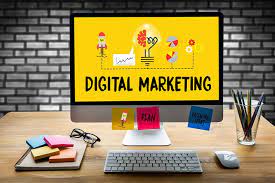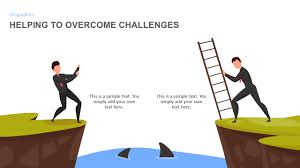Title: Empowering Refugees Economically Through Digital Marketing: A Path to Self-Sufficiency
Economically

In recent years, the global refugee crisis has reached unprecedented levels, with millions of individuals forced to flee their homes due to conflict, persecution, or other forms of violence. For these displaced populations, finding stable employment and achieving economic independence can be daunting challenges. However, in today’s digital age, the power of technology and digital marketing offers a promising avenue for empowering refugees economically. By leveraging digital platforms and marketing strategies, refugees can access new opportunities, build livelihoods, and work towards self-sufficiency.
Understanding the Challenges
Before delving into the ways digital marketing can empower refugees, it’s essential to grasp the challenges they face. Refugees often encounter barriers such as language barriers, lack of local networks, limited access to resources, and discrimination in the job market. Additionally, traditional modes of employment may be inaccessible due to legal restrictions or mobility constraints. These obstacles make it difficult for refugees to secure stable income and support themselves and their families.
The Role of Digital Marketing

Digital marketing encompasses a broad range of online tactics aimed at promoting products, services, or causes. Its versatility and accessibility make it an ideal tool for empowering refugees economically. Here’s how digital marketing can make a difference:
- Online Marketplaces: Platforms like Etsy, eBay, and Amazon provide opportunities for refugees to sell handmade crafts, artwork, or other goods. Through digital marketing techniques such as search engine optimization (SEO) and social media marketing, refugees can reach a global audience and increase their sales.
- Freelancing Platforms: Websites like Upwork, Freelancer, and Fiverr allow individuals to offer their skills and services to clients worldwide. Refugees with expertise in areas such as graphic design, writing, translation, and programming can leverage these platforms to find remote work opportunities.
- E-commerce: With the rise of e-commerce platforms like Shopify, WooCommerce, and BigCommerce, refugees can establish their online stores and sell products directly to consumers. Digital marketing strategies such as content marketing, email marketing, and influencer partnerships can help drive traffic to their e-commerce sites and boost sales.
- Social Media: Platforms like Facebook, Instagram, and LinkedIn offer powerful tools for networking, brand building, and customer engagement. Refugees can use social media marketing to showcase their talents, connect with potential clients or employers, and amplify their message to a wider audience.
Overcoming Challenges

While digital marketing holds immense potential for empowering refugees economically, several challenges must be addressed:
- Digital Literacy: Many refugees may lack the necessary digital skills to navigate online platforms effectively. Providing training and support in areas such as basic computer skills, internet usage, and digital marketing fundamentals can bridge this gap.
- Access to Technology: Access to reliable internet connectivity and devices is essential for participating in digital marketing activities. NGOs, governments, and private sector partners can collaborate to ensure refugees have access to technology infrastructure and devices.
- Language and Cultural Barriers: Language proficiency and cultural understanding are crucial for effective communication and marketing. Offering language courses, translation services, and cultural sensitivity training can help refugees overcome these barriers and connect with their target audience.
- Legal and Regulatory Hurdles: Refugees may face legal restrictions or bureaucratic challenges that limit their ability to work or conduct business. Advocacy efforts and legal support can help address these barriers and create an enabling environment for refugee entrepreneurship.
Case Studies and Success Stories

Highlighting real-life examples of refugees who have successfully leveraged digital marketing can inspire others and showcase the potential impact of these strategies. Stories of individuals who have built thriving businesses, found remote employment opportunities, or gained financial independence through digital marketing can serve as powerful testimonials and role models for aspiring entrepreneurs.
Conclusion
In conclusion, digital marketing offers a promising pathway for empowering refugees economically and fostering their self-reliance. By leveraging online platforms, social media, and e-commerce tools, refugees can access new opportunities, build livelihoods, and work towards financial independence. However, addressing challenges such as digital literacy, access to technology, language barriers, and legal hurdles is essential to realizing the full potential of digital marketing for refugee empowerment. Through collaboration between governments, NGOs, the private sector, and the refugee community itself, we can harness the power of digital marketing to create a brighter future for displaced populations worldwide.
